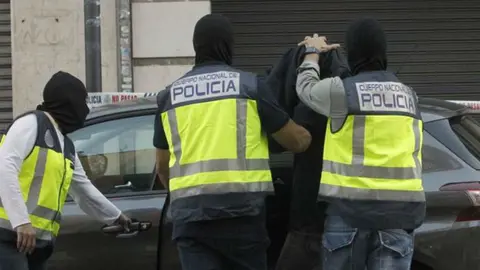The trap of extremes: how to break the vicious cycle in Spanish politics

Like a perverse dance, both extremes feed off each other, turning public debate into a battlefield where reason and coexistence are relegated to the sidelines. How did we get to this point and, more importantly, how can we escape this trap?
When Vox points to immigrants, especially Muslims, as a threat to national security and identity, it not only polarises, but also gives jihadists a perfect narrative for their propaganda.
Its proposals, such as declaring immigration a matter of national security or closing mosques, may seem to its voters to be a defence of Spain, but in reality they create a breeding ground for alienation.
Every message that stigmatises an entire community reinforces the jihadist narrative that the West is at war with Islam. And so the extremes shake hands: Vox legitimises its discourse with every violent incident, while jihadists use Vox's rhetoric to justify their hatred. It is a vicious circle that drags us all down.
This dynamic is not new, but in the current context, with social media amplifying every provocation, it becomes more dangerous. As a citizen, I am concerned that this game of mirrors between extremes not only fractures social cohesion, but also weakens the democratic values that took so long to consolidate.
Vox, operating within the democratic framework, wraps its hate speech in an apparent legitimacy, making it difficult to confront without falling into the trap of limiting freedoms. At the same time, jihadism exploits any hint of marginalisation to recruit those who feel singled out. How can we break this cycle?
I believe the solution lies in a courageous and multidimensional approach.
First, we need policies that promote the real integration of immigrant communities, especially Muslim ones. Job training programmes, access to education and spaces for interfaith dialogue can reduce the marginalisation that fuels extremism. It is not about ignoring the problems, but about addressing them intelligently, without stigmatising entire groups.
Second, it is time for the media and institutions to take responsibility. The media must stop amplifying sensationalist headlines that fuel hate speech, offering instead rigorous analysis that debunks falsehoods. Institutions, for their part, must firmly enforce laws against hate speech, but with care not to give Vox the opportunity to play the victim. It is a delicate balance, but a necessary one.
Education is another fundamental pillar. As a society, we must invest in teaching our young people the value of diversity and critical thinking. The authoritarian nostalgia that Vox exploits, with echoes of Francoism, can only be countered with a living historical memory and an education that demystifies the past.
If we do not confront the shadows of our history, we will continue to give space to those who use them to divide us.
In the area of security, we need precise and transparent policies. Strengthening counter-terrorism intelligence and speeding up the deportation of individuals with clear links to terrorism is reasonable, but always with due process. General measures, such as closing mosques or criminalising entire communities, only feed the narrative of injustice that jihadists seek.
Finally, I believe that democratic parties must draw a clear line: Vox cannot be normalised through tactical alliances. Every pact with the far right legitimises its discourse and weakens the democratic centre. As citizens, we also have a role to play: to reject polarisation, seek dialogue and not fall into the trap of responding to hatred with more hatred.
This ‘diabolical dynamic’ is not inevitable. It is up to us, as a society, to decide whether we want to remain trapped in it or build a country where coexistence is stronger than extremes. I believe we can do it, but it requires will, empathy and a collective commitment to the values that unite us. It is not an easy task, but isn't it worth trying?
Chema Gil, graduate in Security from the University of Murcia and analyst on security and international terrorism.
@ChemaDireccion



